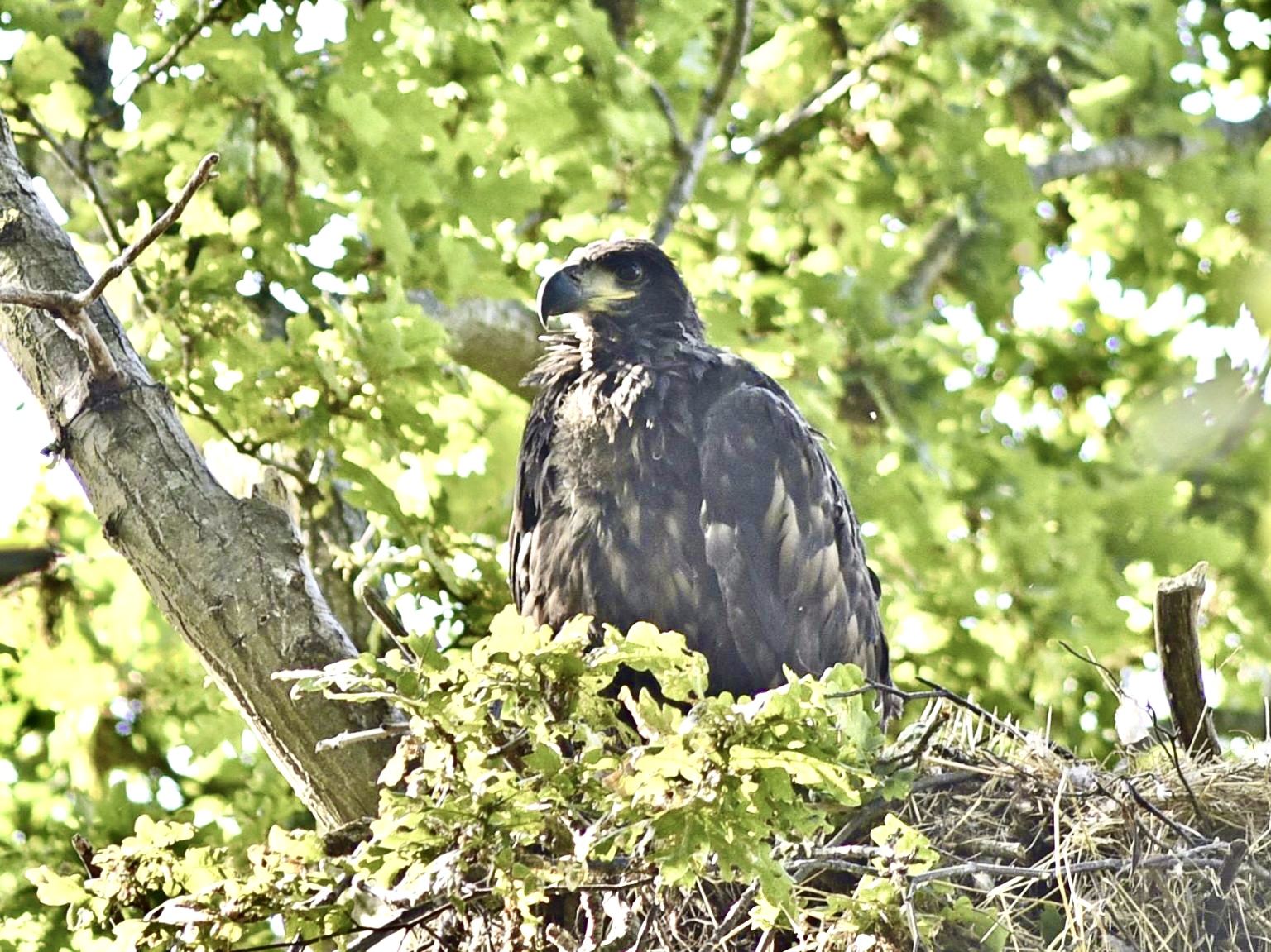Hopeful News As The First White-Tailed Eagle Has Been Born In England In 240 Years
The chick was fitted with a satellite tag prior to fledging (Forestry England)
In a landmark moment, the first white-tailed eagle in over 240 years has fledged from a nest in the wilds of England. The chick is the first successful breeding attempt of white-tailed eagles released by Forestry England and the Roy Dennis Wildlife Foundation’s project to return this lost species to England.
White-tailed eagles are Britain’s largest birds of prey with a wingspan of up to 2.5 meters and were once widespread across England. Human persecution caused their extinction with the last pair breeding in southern England in 1780. In 2019, Forestry England and the Roy Dennis Wildlife Foundation began a reintroduction program to restore these iconic birds to the English landscape.

Two of the birds released by the project in 2020 – female G405, originally translocated from the Outer Hebrides, and male G471, from north-west Sutherland – reared the male chick earlier this summer. The location of the nest, which is on private land with no public access, is not being disclosed for the welfare of the birds and to prevent any disturbance to them or the landowner either this year or if the birds return to breed at the same location.
The chick was ringed and fitted with a satellite tag by licensed ornithologists from the Roy Dennis Wildlife Foundation, which enables the project team to track this historic bird’s daily progress through its life.
“This is a very special moment for everyone who has worked on, supported and followed this ground-breaking project. Restoring a breeding population in southern England, where the species was once widespread, has been our ultimate goal,” said Roy Dennis MBE, Founder of the Roy Dennis Wildlife Foundation. “Many thought it was impossible but we knew food for eagles – fresh and salt water fish, cuttlefish, rabbits, hares, and wild birds – was plentiful.”
“I visited the Isle of Wight as a young birdwatcher in the 1950s, saw the last breeding location at Culver Cliff and knew they should be restored,” continued Dennis. “It is early days, but this is a very significant milestone and we are heartened by the enthusiastic support shown by so many people and that the sight of these huge eagles in the sky inspires hope for restoring nature. We still have a long way to go, but the feeling of seeing the first pair reach this stage is truly incredible.”
The birds are one of three territorial pairs that have now become established in southern England and the first to breed.
“We are thrilled that this moment has happened and at such an early stage in the project. At only three years old, it is remarkable that the pair have successfully bred, with most white-tailed eagles not attempting to do so until they are at least four or five years old. This pairs’ ability to breed and fledge their chick at this early age is extremely encouraging,” said Steve Egerton-Read, White-Tailed Eagle Project Officer for Forestry England.
“It is really hard to put into words just what an incredible moment this is for the return of these iconic birds to England. It is evidence of just how well the eagles are starting to fit back into this landscape and how, with a little help, nature can begin to return and thrive. Although it has not been possible to set up a public viewing site at this location, we are hopeful that one of the other pairs that has become established in southern England will choose to nest in a location that we can share with the public in future years,” continued Egerton-Read.
To date, 25 white-tailed eagles have been released by the reintroduction project with 16 still surviving. A further release of young white-tailed eagles is planned for later this summer from the project team’s base on the Isle of Wight.
The reintroduction of white-tailed eagles is conducted under licence from Natural England, the Government’s wildlife licensing authority. All of the young birds involved in the project are collected under a NatureScot license from the wild in Scotland and brought to the Isle of Wight.